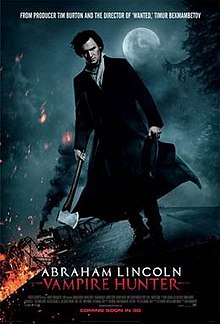 Je ne connais pas très bien son oeuvre en tant que réalisateur, mais j'apprécie ce que j'en ai vu (Les Griffes du Lion en particulier, qui me semble un film très sous-estimé) C'est surtout en tant qu'acteur que je me souviendrai de lui - et quel acteur! Gang de tueurs, La Grande évasion, Hold-up à Londres, Le Rideau de brume, Le Vol du Phénix et tant d'autres. Son moment de gloire à mon avis fut le très sous-estimé 10, Rillington Place où il offre l'une des interprétations les plus inquiétantes de l'histoire du cinéma. Si les Oscars se gagnaient vraiment au mérite, il aurait reçu une nomination et peut-être même une statuette. R.I.P.
Je ne connais pas très bien son oeuvre en tant que réalisateur, mais j'apprécie ce que j'en ai vu (Les Griffes du Lion en particulier, qui me semble un film très sous-estimé) C'est surtout en tant qu'acteur que je me souviendrai de lui - et quel acteur! Gang de tueurs, La Grande évasion, Hold-up à Londres, Le Rideau de brume, Le Vol du Phénix et tant d'autres. Son moment de gloire à mon avis fut le très sous-estimé 10, Rillington Place où il offre l'une des interprétations les plus inquiétantes de l'histoire du cinéma. Si les Oscars se gagnaient vraiment au mérite, il aurait reçu une nomination et peut-être même une statuette. R.I.P.I'm not familiar with his work as a director, but I like what I've seen (his You-Know-Who biopic, Young Winston, is very underrated I think) I'll remember him first as an actor - and what an actor! Brighton Rock, The Great Escape, The League of Gentlemen, Seance on a Wet Afternoon, The Flight of the Phenix and many others. His greatest moment, I think, was the much underrated 10, Rillington Place where he delivered one of the most chilling performances in film history; if Oscars were really about merit, he would have earned a nomination and maybe won. R.I.P.


